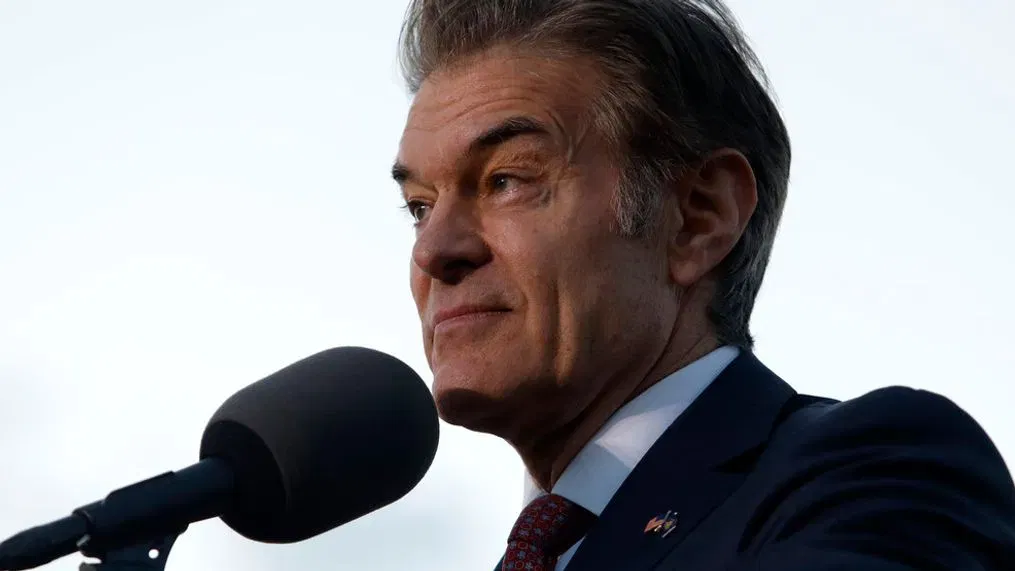President-elect Donald Trump has nominated Dr. Mehmet Oz, the renowned cardiothoracic surgeon and television personality, to head the Centers for Medicare and Medicaid Services (CMS). The agency, which oversees health insurance coverage for more than 150 million Americans, plays a critical role in the administration of Medicare, Medicaid, and the Affordable Care Act (ACA) exchanges.
Trump expressed strong confidence in Oz, saying in a statement that he believes Oz will work tirelessly to improve American healthcare. He emphasized Oz’s ability to lead efforts in disease prevention and cut waste and fraud within the government’s health programs, which make up a significant portion of the U.S. federal budget. “He will fight to ensure everyone in America receives the best possible healthcare, so our Country can be Great and Healthy Again,” Trump stated. The president-elect further stressed that Oz would lead the charge to eliminate inefficiency in CMS, which accounts for a third of the country’s healthcare spending.
Dr. Oz’s appointment is part of a pattern of unconventional picks by Trump for key administration roles. Oz, who gained national fame as a medical expert on “The Oprah Winfrey Show” before launching his own syndicated talk show, “The Dr. Oz Show,” has previously served on Trump’s Presidential Council on Sports, Fitness, and Nutrition. Despite his fame, Oz’s path to heading CMS has been met with mixed reactions, particularly due to his limited political and governmental experience. In 2022, Oz unsuccessfully ran for Senate in Pennsylvania, with Trump’s support, but lost to Democrat John Fetterman.
Oz’s views on healthcare have sparked debate over the years. While he has publicly supported aspects of the Affordable Care Act in the past, his stance on healthcare reforms is more aligned with conservative positions. In his Senate campaign, Oz championed a plan to expand Medicare Advantage, a privatized alternative to traditional Medicare, which has gained popularity among seniors but also faces criticism for overpayments to insurers. Oz’s advocacy for Medicare Advantage aligns with Trump’s stance on reducing government spending, particularly in entitlement programs.
However, his approach to healthcare does not entirely fit the traditional Republican orthodoxy. Oz has consistently argued for universal healthcare coverage, including mandatory insurance for all Americans, even those who cannot afford it. This progressive stance puts him at odds with some conservative members of his party, who have long pushed for reducing government involvement in healthcare. Oz’s prior comments supporting Obamacare, although retracted during his Senate bid, contrast with Trump’s previous efforts to repeal and replace the ACA, which the president-elect has said he plans to overhaul, albeit without specifying details.
Oz’s tenure as CMS administrator would likely include overseeing the Affordable Care Act exchanges, which continue to cover millions of Americans. His role would also involve managing Medicare and Medicaid, two of the largest federal health programs. With Republicans expected to revisit proposals for Medicaid cuts, Oz could play a significant role in shaping future policy, particularly regarding the expansion of Medicare Advantage. Critics, however, argue that this could lead to a multi-billion-dollar transfer of funds to private insurers at the expense of quality care for seniors and low-income Americans.
His nomination has drawn a sharp response from some public health advocates and Democrats. Rep. Frank Pallone, a New Jersey Democrat, criticized Trump’s selection of a television personality without relevant experience. He expressed concern that Oz’s leadership would endanger public health, particularly given Oz’s controversial past statements, including his support for unproven COVID-19 treatments like hydroxychloroquine. Additionally, Oz’s advocacy for alternative medicines has raised concerns within the medical community, with some calling for his removal from Columbia University’s faculty due to his promotion of dubious health practices.
On the other hand, some Republicans, such as Sen. Bill Cassidy, a medical doctor himself, praised Oz’s appointment. Cassidy welcomed the prospect of a physician leading CMS, noting that it had been over a decade since a doctor held the position. He expressed optimism that Oz could help implement conservative health reforms, particularly in curbing waste and inefficiency.
For advocates of Medicare, the nomination raises alarms about the future of the program. Andrea Ducas of the Center for American Progress warned that Oz might push for an unchecked expansion of Medicare Advantage, a policy that could limit seniors’ healthcare choices while benefiting private insurers. With Trump’s “Project 2025” blueprint calling for substantial changes to federal agencies and entitlements, the direction of healthcare policy in a second Trump administration remains a point of contention.
As Trump’s CMS nominee, Dr. Oz will be under scrutiny as he works to navigate complex healthcare issues, balancing reforms with access to quality care for millions of Americans. Whether his unconventional background proves to be an asset or a liability for American healthcare policy remains to be seen.








